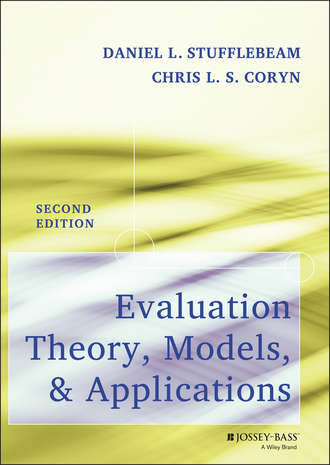
Полная версия
Evaluation Theory, Models, and Applications
The golden standard evaluation reference text Now in its second edition, Evaluation Theory, Models, and Applications is the vital text on evaluation models, perfect for classroom use as a textbook, and as a professional evaluation reference. The book begins with an overview of the evaluation field and program evaluation standards, and proceeds to cover the most widely used evaluation approaches. With new evaluation designs and the inclusion of the latest literature from the field, this Second Edition is an essential update for professionals and students who want to stay current. Understanding and choosing evaluation approaches is critical to many professions, and Evaluation Theory, Models, and Applications, Second Edition is the benchmark evaluation guide. Authors Daniel L. Stufflebeam and Chris L. S. Coryn, widely considered experts in the evaluation field, introduce and describe 23 program evaluation approaches, including, new to this edition, transformative evaluation, participatory evaluation, consumer feedback, and meta-analysis. Evaluation Theory, Models, and Applications, Second Edition facilitates the process of planning, conducting, and assessing program evaluations. The highlighted evaluation approaches include: Experimental and quasi-experimental design evaluations Daniel L. Stufflebeam's CIPP Model Michael Scriven's Consumer-Oriented Evaluation Michael Patton's Utilization-Focused Evaluation Robert Stake's Responsive/Stakeholder-Centered Evaluation Case Study Evaluation Key readings listed at the end of each chapter direct readers to the most important references for each topic. Learning objectives, review questions, student exercises, and instructor support materials complete the collection of tools. Choosing from evaluation approaches can be an overwhelming process, but Evaluation Theory, Models, and Applications, Second Edition updates the core evaluation concepts with the latest research, making this complex field accessible in just one book.

